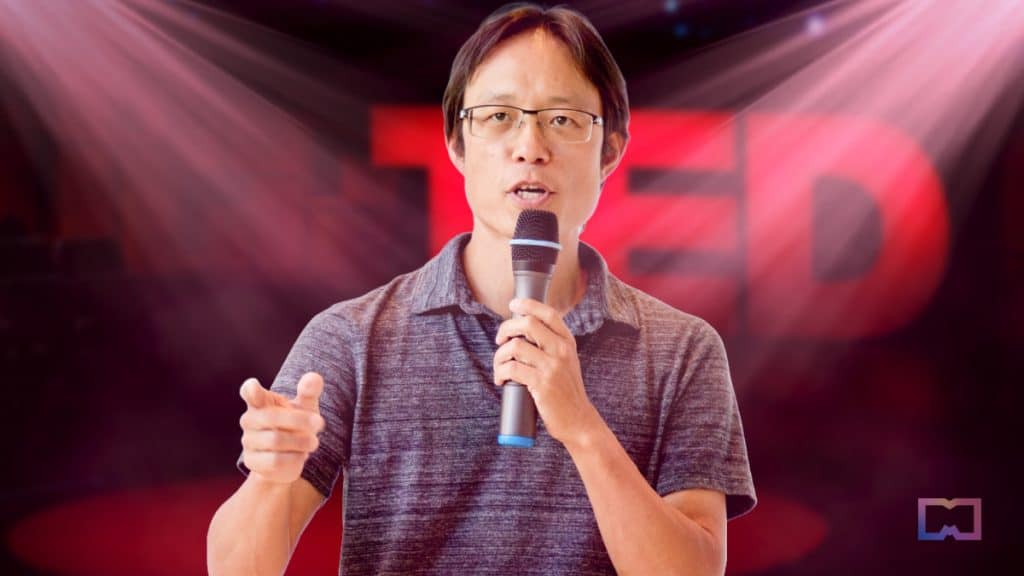[ad_1]

Yat Siu, the founder and executive chairman of Animoca Brands, has explored the “open metaverse” and explained why the metaverse isn’t dead in his TED talk. The decentralized version of the internet, or Web3, lays the groundwork for a freer, fairer, and more prosperous society. Siu further delves into the transformative potential of Web3, including digital ownership, the creator economy, and an updated capitalist model.
Upon Yat Siu’s reexamination of the metaverse, he noted its expansion and heightened impact. The decentralized metaverse has evolved into a hub, providing employment and economic opportunities.
Within the digital space, individuals and groups have established intricate systems reminiscent of modern capitalist societies. Impressively, the metaverse contributed $30 billion in economic activity last year, with communities autonomously overseeing $12 billion in treasuries (DAOs).
“The banking system underlying the open metaverse is DeFi,” Yat Siu added.
The Importance of Data and the Problem with AI
Yat Siu emphasized one of the biggest issues online – data collection. Users’ digital presence can be erased on any platform at any time without any due process. People enrich networks that are not theirs with their time, attention, and creativity whenever they are online by producing large amounts of data.
“And data is the most valuable of resources. For starters, it’s powering all of the AI that we’ve been hearing so much about. No data, no ChatGPT, no self-driving cars. The entire foundation of the AI industry is built on top of our data. And not just AI. Every industry covets our data.”
As Siu said, data has become the modern form of labor, yet there’s no compensation for it. While users produce this data, it is only owned by publishers and platforms. Siu argued that data “theft” represents the current web2 reality. However, the emergence of Web3 and blockchain holds the potential to rectify this, as it introduces the prospect of genuine digital ownership, a stark departure from the conventions of Web2.
Open Metaverse Drives the New Economy
Siu shared that the video game industry made over $100 billion from selling virtual goods last year. Most of these goods were just for fun and in-game appearance.
But none of these virtual items belong to the buyers. They are only renting them for $100 billion. NFTs can make a difference because they let people own these virtual goods. When someone owns an NFT, like a piece of virtual land in the metaverse, they become a stakeholder and an owner.
As Animoca Brand’s founder said, owning an asset in Web3 means having a stake in the network you want to join.
“Imagine every time you shared something on Instagram, for value you generated, you would receive a small stake in the network that would be that social network. Think of the open metaverse as the construction of new economies and new societies with a strong foundation of digital property rights.”
Blockchain offers a solution for individuals. The technology can trace the origin of digital property and establish a foundation to safeguard users’ rights. In the upcoming web3 era, all individuals have the potential to earn and possess a share of the equity in the networks they contribute to building and expanding.
“All the data that we generate today … should be paying us an income. And all the other benefits that property rights may bring. That is why web3 is so often described as the internet of ownership. And ownership has always been a key pillar to prosperity.”
The digital landscape offers a glimpse of this potential, where NFTs generated a remarkable $24 billion in sales last year. Siu explained that a significant portion of this revenue reached the creators and owners of NFTs, in contrast to web2 platforms like Spotify, which only shared a third of their earnings with creators during the same period.
“In order to ensure our digital freedom, that we not be slaves to either platforms or any of the future AIs, we must also have true digital property rights.”
Read more:
[ad_2]
Read More: mpost.io








 Bitcoin
Bitcoin  Ethereum
Ethereum  Tether
Tether  XRP
XRP  Solana
Solana  USDC
USDC  TRON
TRON  Dogecoin
Dogecoin  Lido Staked Ether
Lido Staked Ether  Cardano
Cardano  Wrapped Bitcoin
Wrapped Bitcoin  Hyperliquid
Hyperliquid  Wrapped stETH
Wrapped stETH  Sui
Sui  Bitcoin Cash
Bitcoin Cash  Chainlink
Chainlink  LEO Token
LEO Token  Stellar
Stellar  Avalanche
Avalanche  USDS
USDS  Toncoin
Toncoin  WhiteBIT Coin
WhiteBIT Coin  Shiba Inu
Shiba Inu  Hedera
Hedera  Litecoin
Litecoin  WETH
WETH  Binance Bridged USDT (BNB Smart Chain)
Binance Bridged USDT (BNB Smart Chain)  Wrapped eETH
Wrapped eETH  Monero
Monero  Ethena USDe
Ethena USDe  Polkadot
Polkadot  Bitget Token
Bitget Token  Coinbase Wrapped BTC
Coinbase Wrapped BTC  Pepe
Pepe  Uniswap
Uniswap  Pi Network
Pi Network  Aave
Aave  Dai
Dai  Ethena Staked USDe
Ethena Staked USDe  Bittensor
Bittensor  OKB
OKB  BlackRock USD Institutional Digital Liquidity Fund
BlackRock USD Institutional Digital Liquidity Fund  Aptos
Aptos  Cronos
Cronos  sUSDS
sUSDS  NEAR Protocol
NEAR Protocol  Internet Computer
Internet Computer  Jito Staked SOL
Jito Staked SOL  Ethereum Classic
Ethereum Classic